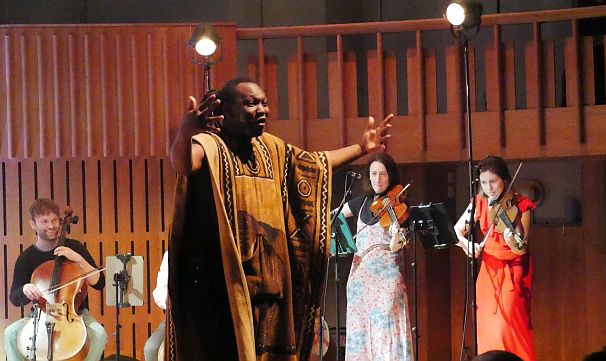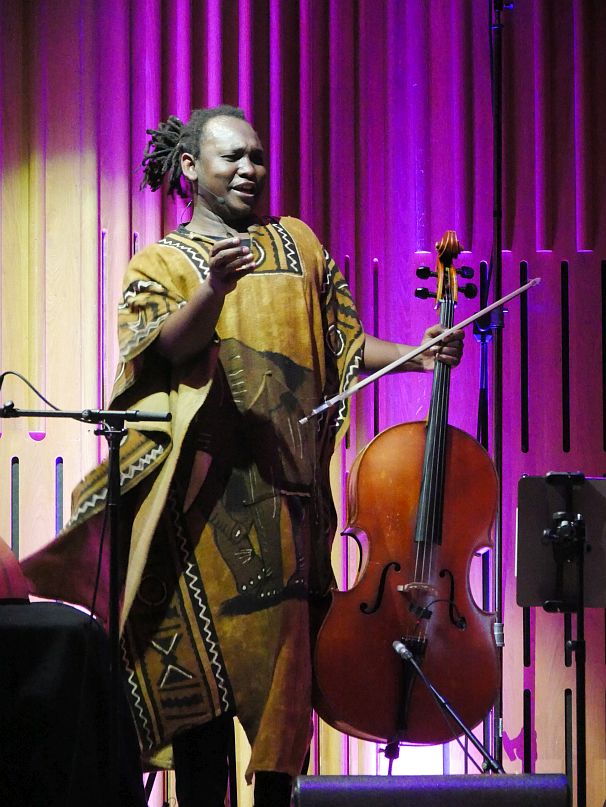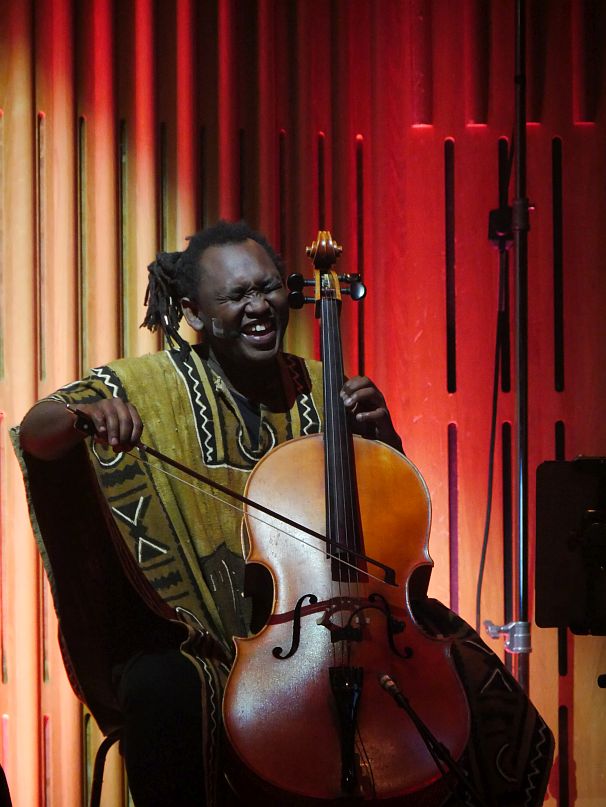
8th April 2022
It’s a lovely room, home to a wide and interesting programme and it is great to see it packed for tonight’s performance. A South African cellist, who trained in Manchester, Abel Selaocoe performs with the Manchester Collective in a new programme, fusing classical repertoire with African music to make a warm-hearted show that still explores the outer edges of sound. Selaocoe points out that classical music borrows, mentioning Stravinsky and jazz, Bartok and African rhythms; explaining if there is one thing African music excels in, it is rhythm. Tonight, there is none of the fussy classical / rock fusion stuff older readers might have been tortured with and, instead a lightness of touch and a smiling warmth.
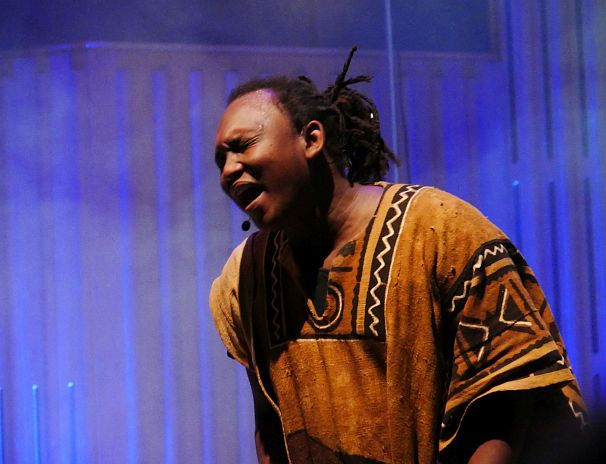
The show opens with an improvisation leading into some Vivaldi. The set up is Selacoe on cello, half a dozen violins, two more cellos, a double bass, a percussionist and an electric bass. They make for a very skilled small orchestra and no-one could find fault with the Vivaldi. There are other compositions – by Picforth from the sixteenth century, Leith and Selaocoe from the twenty-first century – and the orchestra are used in surprising ways. The bass gets treated and at one point sounds like a set of Hawkwind riffs. Selaocoe sings and his throat-singing is amazing, resembling a didgeridoo. The cello shifts from bowing to choppy, violently fast sounds. The strings adopt a very Britten-ish tone for Leith’s piece and some parts sound like droning bees being dragged backwards, in sounds we aren’t used to hearing in this setting. The first act rounds out with Abel playing a kid’s violin, creating similar sound to a Tanzanian instrument, after explaining the joy in free exploration, in learning through play. He extracts maximum effect from a tiny instrument.
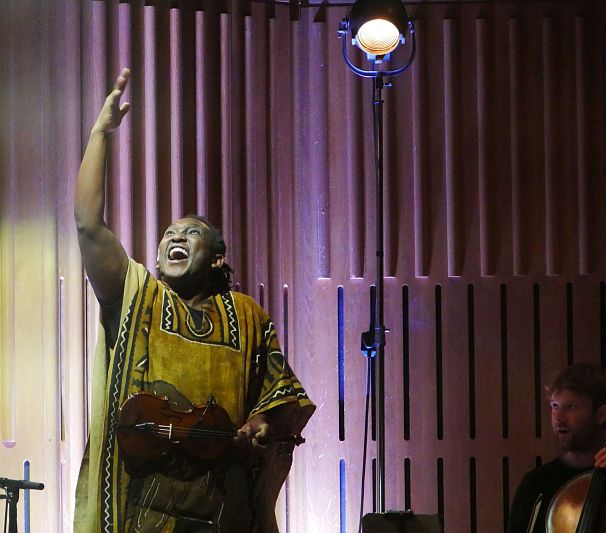
The Collective open the second half with Stravinsky’s three-part Concerto in D. Tense, sharp, distinct and full of colour, it seems to tell a story tonight, as it shifts from tense to romantic and back. Selaocoe tells a story too, explaining his thinking behind the programme; he is out to highlight the links between Western and non-Western musical traditions. He does so by presenting two pieces by himself, including singing, audience participation and dancing. If you’d come attracted solely by mention of Vivaldi and Stravinsky and expected serious music and chin-stroking, you’d be right but also surprised at the playfulness, the singing and the dancing. As the joy rises, grins break out on the faces of his co-performers and the violins break into dance. Before long, in Mica Levi’s ‘Love’, the mood shifts as a disturbing miasma of strings and twin keyboards bring back its soundtrack role in ‘Under the Skin’, where love is another word for Scarlett Johansson’s character’s alien hunger.
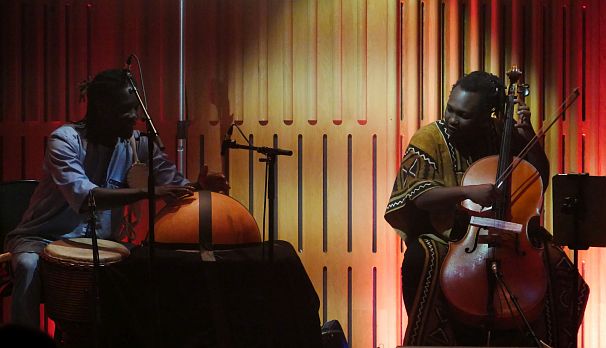
In what seems like a very short time, we are at the encore and Abel exhorts the audience to love, to take time and to escape sometimes from always planning; live in the moment when listening to music. The evening has travelled between worlds, showing the rigour of classical music old and new, alongside a different sort of rigour – a concentrated effort to fuse traditions and forge a joyful path on a new road.
